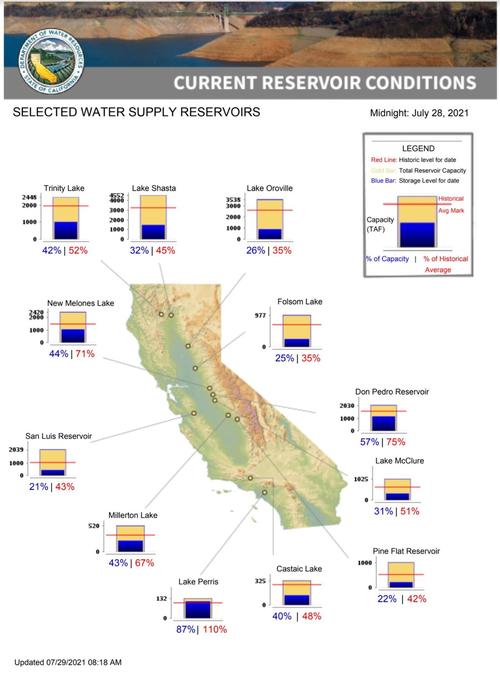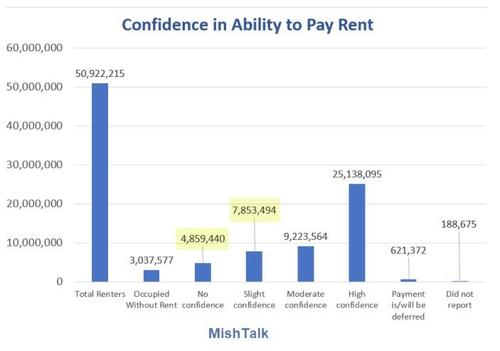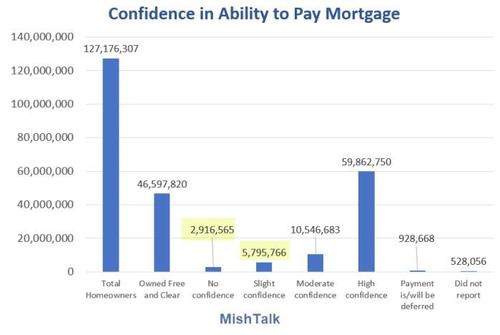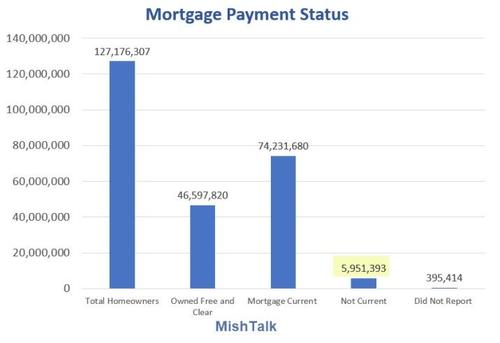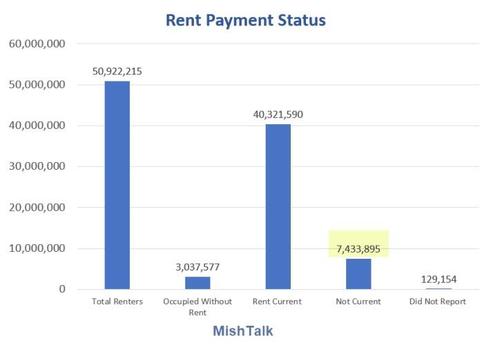Authored by Philip Wegmann via RealClear Politics (emphasis ours),
It was Madison Cawthorn’s turn to pay for lunch, and because the freshman congressman bought the barbeque Wednesday, he got to make a short speech behind closed doors.
The North Carolina lawmaker told his more senior colleagues that “our people” only want to “swing for the fences” while Democrats, at least in his limited experience, were happy to move their plans forward “inch by inch.” And then, Cawthorn wrapped his remarks by urging the Republican Study Committee to “be more willing to accept a limited victory.”
Sen. Ted Cruz sat nearby silently picking at his brisket.
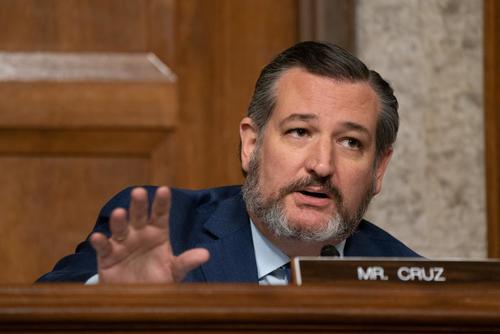
One of the original heroes of the Tea Party and the scorched-earth strategy it embodied, Cruz hadn’t walked over from the Senate to talk about wins on the margins. He warned his House counterparts that “Democrats are deadly serious” about their agenda, and said they would “go to any lengths” to pass it. He complained that too many in the Grand Old Party still treated governing “like we are playing croquet in the back lawn.” Cruz said it was time “to hold the line.”
This was the message the Texas senator delivered to a receptive conservative congregation in the basement of the Capitol on Wednesday. He said things would get worse for them before they got better. Much worse. Cruz has a pendulum theory of politics. So while he came to offer some hope, “to encourage you,” he began with a rather bleak view of things.
The way Cruz sees it, President Biden’s honeymoon has turned into “an absolute train wreck.” At home, illegal immigrants are pouring across the southern border unchecked, gasoline prices continue to climb, and inflation alarm bells are ringing off the hook, ignored. Abroad, things are not much better. The White House surrender on the Nord Stream pipeline amounts to “a generational geopolitical mistake” that will line the pockets of “the next dictator in Russia” long after Vladimir Putin is dead and gone. And the Department of Justice’s dismissal of charges against visiting Chinese researchers was a disturbing sign of an administration trying to “make nice with the Community Party of China.”
The frustrated Republicans in the room nodded along at the doom-and-gloom, waiting on the promised good news. “Why is it that I’m optimistic then?” Cruz asked. “I’m optimistic because there’s a natural tendency in politics of the pendulum going too far in one direction.” This is reason for hope, in his estimation, because the White House is overreaching on every front, “and every time we see some crazy-ass ideas, we should be encouraged.”
It will be morning in America soon because “the country is waking up.” Cruz argued that the 2020 electorate was made up of people who couldn’t take any more mean tweets from the last president, so they pulled the lever “for nice Uncle Joe.” He added that those same voters “are now looking at his agenda and saying, ‘This is not what we signed off on.”
“There is a saying that history doesn’t repeat but sometimes it rhymes — I think Joe Biden is Jimmy Carter 2.0,” Cruz said, mixing an old maxim with current GOP messaging. “And the good news is it took Jimmy Carter to give us Ronald Reagan,” continued the two-term senator who finished second in the 2016 GOP primary and undoubtedly still harbors White House ambitions.
It is going to be rough for Republicans until someone can get on a debate stage with Biden. With Democrats in control of both houses of Congress, Cruz said, “they can ram through some really bad policy, they can spend a ton of money and raise taxes — and they are going to do it.” Until next year, Cruz told the assembled Republicans, “we have a responsibility to slow the damage.”
He puts their odds of taking the House at “80-20.” The Senate, because of a difficult map with more red seats than blue ones up for grabs, is “50-50.” Until Nov. 8, 2022, comes, Cruz continued, they basically have two choices: Republicans can “go down swinging as the Democrats ram through some terrible policy,” or “we roll over and let them do it to the country.” He didn’t tell them that either option would be pleasant — “look, there are consequences when you lose both houses of Congress and the White House.”
But the call to arms is second nature for Cruz. His brand was obstruction during the Obama years, and he came of age in the upper chamber goading the GOP into being more, not less, receptive to the conservative grass roots. These days, his messaging is writ large in Cruz campaign merchandise. During spring break season back in March, there were tank tops and trucker hats that would have been unthinkable a few short years ago. Thirty bucks buys a Cruz supporter a T-shirt emblazed with an exaggerated and clearly self-depreciating image of the senator’s mullet. The caption reads, “McConnell in the front, MAGA in the back.”
The campaign swag drew instant headlines. It also told a story about shifting factions within the Republican Party. As a freshman senator during the Obama years, Cruz irritated not just a Democratic president, but his own party’s leaders as well. Reelected to a second term in the Trump era, Cruz now finds himself simpatico with GOP brass in a political party trying to weather the Biden administration and an aggressive congressional Democratic majority.
Perhaps the invitation to Wednesday’s lunch also underscores the rightward shift of Republicans. After all, the Republican Study Committee is the largest and most influential GOP caucus on Capitol Hill. The group’s chairman, Rep. Jim Banks of Indiana, has rallied the party, huddling regularly with Minority Leader Kevin McCarthy and turning the organization into a forum for potential 2024 contenders to audition. Members of the committee certainly liked what Cruz had to say Wednesday. They were particularly pleased with his pandemic politics.
In short order, Cruz condemned the re-masking recommendation from the Centers for Disease Control as “idiotic, not science,” mocked the speaker of the House as “Queen Pelosi” for fining vaccinated members who don’t don face coverings, and concluded that, with its latest masking policy, the administration “has ‘jumped the shark.’” He added, “We’re likely to see no Republicans complying with it in the states.”
While those arguments drew nods of agreement, Cruz spent most of his time railing against the president’s massive infrastructure package. “I’m worried about where the Senate is going to go,” he admitted, “and I recognize the old adage in the House that ‘Democrats are your opponents and the Senate is the enemy.’ There is some truth to that.”
Before he spoke to the RSC, one of the 10 or so Republicans open to the White House spending plan had texted him about the infrastructure funds that would head to Texas. In his telling, Cruz typed back, “I’m like, ‘How about you don’t take our money, then give it back to us?’” The room let out a collective laugh at that, and Cruz related the risk he sees his colleagues taking by backing any part of the initiative.
There are two proposals that make up that package. The first, the so-called $1.2 trillion “hard” infrastructure bill, would fund physical projects like roads and bridges. It has some bipartisan support. The second, a $3.5 trillion bill, takes a much broader definition of infrastructure to fund child care, health care and education priorities. Republicans uniformly oppose that part, which the White House hopes will include a pathway to citizenship for some of those in the country illegally. To circumvent a filibuster, Senate Majority Leader Chuck Schumer plans to pass it by going the budget reconciliation route.
Cruz warned that this two-track method would lead to the GOP’s own train wreck if enough of his Senate colleagues balked at conservatives’ objections and sided with Democrats. A vote for the “hard” package, he argued, would only grease the skids for the much broader, and far more expensive, component. He offered the RSC a fly-on-the-wall perspective of the contentious closed-door conference meetings, saying that about a dozen Republicans “want to cut a deal with all of their hearts.” He said there has been plenty of yelling.
“We’re having, in our lunches, knock-down, drag-out fights, with the rest of us going, ‘What are you doing?’” An infrastructure bill might be bipartisan, but he predicted the result would make the GOP into the president’s stooges: “Joe Biden is gonna run around and say, ‘Look, it’s all wonderfully bipartisan — I got these happy little Republicans celebrating the spending.”
If his colleagues don’t fight off both bills, if they cut a deal, they won’t just give Biden a win, Cruz argued; they would “put Republican fingerprints all over the inflation bomb that is exploding right now.” What is worse, they risk opening up “a backdoor way to repeal the filibuster.”
When Republicans controlled Congress and the White House, the rules governing reconciliation ruined many of their plans. Specifically, it was the Senate parliamentarian, who determines the procedure by which the chamber can avoid a filibuster and allow legislation to pass by a simple majority. That official can be overruled with a vote by the vice president — a case Cruz says he made “multiple times” in the Oval Office to then-President Trump and Vice President Mike Pence during the effort to repeal Obamacare. “I got laughed out of the room every time I made it,” Cruz recalled. “They said, ‘No, we’re not going to do that because Mitch [McConnell] doesn’t want to.”
Democrats have no qualms about Senate norms. The difference now, he said, is that Vice President Kamala Harris has a more expansive view of the rules. That, and “their side is actually willing to do what it takes to ram their agenda through.” Cruz fears Democrats will use the arcane process as cover to also push through amnesty provisions. After that: HR1, the far-reaching voting rights bill backed by Democrats. “If you hear the phrase ‘election infrastructure,’” he told the room of Republicans, “run and hide.” He was half joking.
What about the other Joe, though? The moderate Democrat from West Virginia who opposes abolishing the filibuster? Cruz said he and Joe Manchin get along just fine, but after nine years in the Senate, he has never seen his colleague “once stand up to Chuck Schumer on any issue that mattered where he was the deciding vote.”
If that happens again, he predicted, the door to abolishing the filibuster would be wide open.
Perhaps Cruz and his colleagues might take inspiration from Texas Democrats, the ones who skipped out of Austin earlier this month to bring the Republican-controlled state legislature to a halt. Rep. Rep. Richard Hudson of North Carolina gave “a tongue-in-cheek” suggestion: “What if all the Republican senators fled to Austin and holed up in The Driskill hotel to deny Democrats a quorum?”
“You had me at Driskill,” Cruz joked, noting how former President Lyndon Johnson “used to sit there on the cowhide sofas drinking bourbon.” But Republicans won’t be sipping whiskey in exile anytime soon, at least not in trying to check Biden. Democrats have the numbers to run rough-shod over them even if they skip town. What should they do then? Cruz told his Republican brethren to lean on Manchin with “the carrot and the stick” — to call the West Virginian’s “oil and gas” donors if need be.
Manchin’s office did not respond to RCP comment request.
To get through the current presidency, to make sure Biden becomes another Jimmy Carter and to make straight the path for another Reagan, Cruz counseled the GOP study committee that they needed to show their base “we’re fighting with everything we’ve got as happy warriors.” But the Texan delivered a dire warning. “From y’all’s perspective,” he cautioned, “don’t count on the Senate to save you.”
